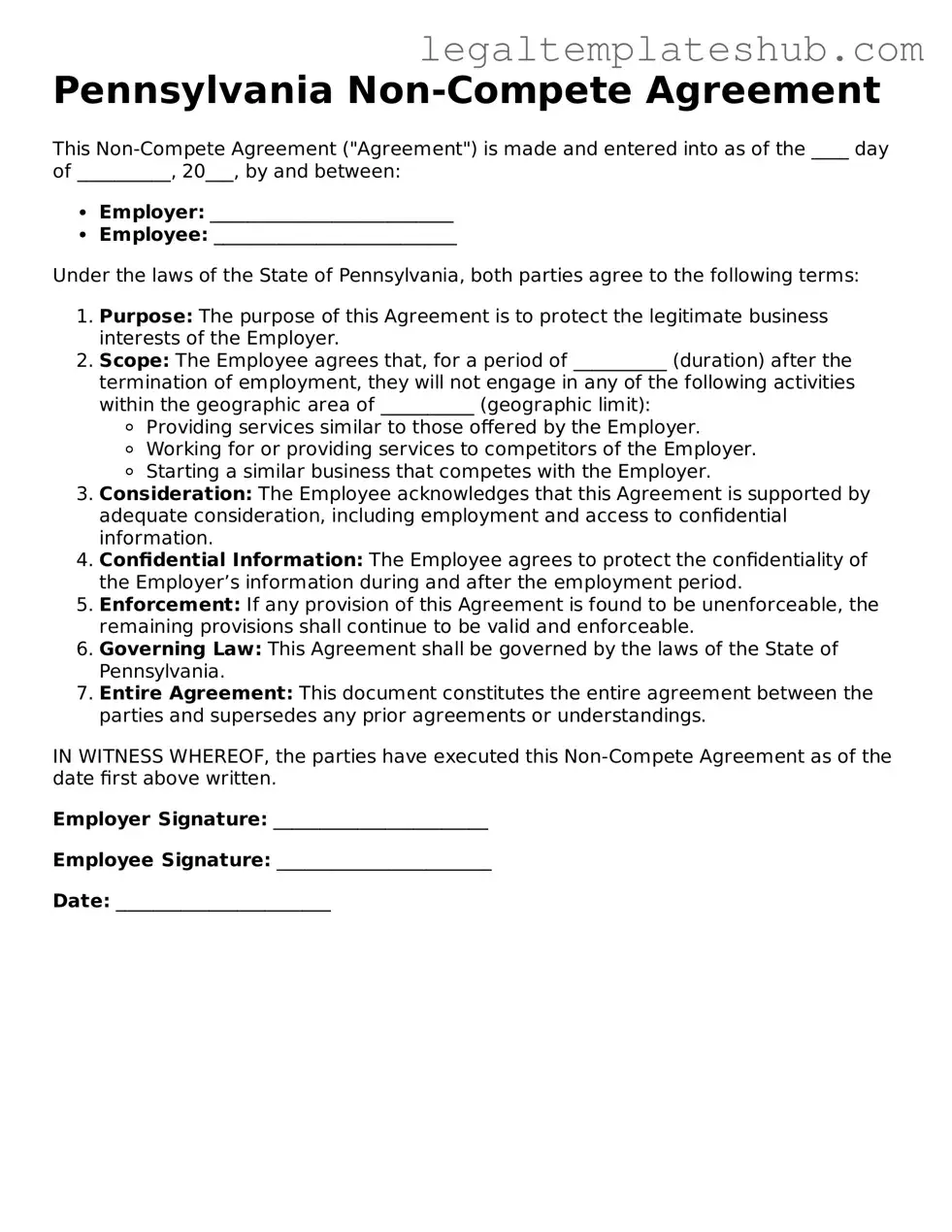Printable Non-compete Agreement Document for Pennsylvania
A Pennsylvania Non-compete Agreement is a legal document that restricts an employee's ability to work for competitors or start a competing business for a specified period after leaving their current employer. This form is designed to protect the employer's business interests and confidential information. To ensure compliance and clarity, it is essential to complete the form accurately.
To fill out the Pennsylvania Non-compete Agreement form, click the button below.
Access Editor
